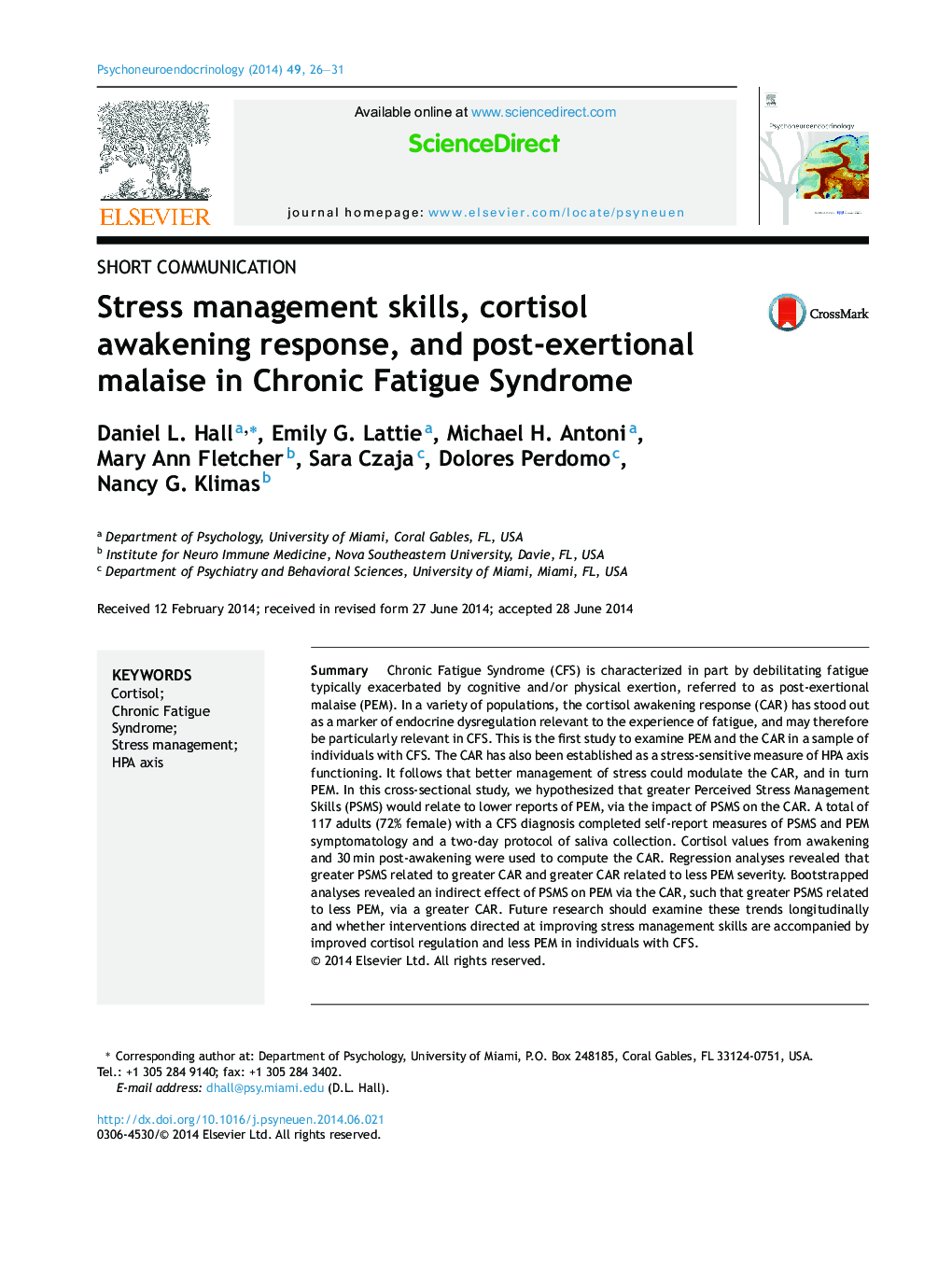| کد مقاله | کد نشریه | سال انتشار | مقاله انگلیسی | نسخه تمام متن |
|---|---|---|---|---|
| 6819493 | 547411 | 2014 | 6 صفحه PDF | دانلود رایگان |
عنوان انگلیسی مقاله ISI
Stress management skills, cortisol awakening response, and post-exertional malaise in Chronic Fatigue Syndrome
ترجمه فارسی عنوان
مهارت های مدیریت استرس، پاسخ بیداری کورتیزول و ناراحتی پس از اعمال جراحی در سندرم خستگی مزمن
دانلود مقاله + سفارش ترجمه
دانلود مقاله ISI انگلیسی
رایگان برای ایرانیان
کلمات کلیدی
موضوعات مرتبط
علوم زیستی و بیوفناوری
بیوشیمی، ژنتیک و زیست شناسی مولکولی
علوم غدد
چکیده انگلیسی
Chronic Fatigue Syndrome (CFS) is characterized in part by debilitating fatigue typically exacerbated by cognitive and/or physical exertion, referred to as post-exertional malaise (PEM). In a variety of populations, the cortisol awakening response (CAR) has stood out as a marker of endocrine dysregulation relevant to the experience of fatigue, and may therefore be particularly relevant in CFS. This is the first study to examine PEM and the CAR in a sample of individuals with CFS. The CAR has also been established as a stress-sensitive measure of HPA axis functioning. It follows that better management of stress could modulate the CAR, and in turn PEM. In this cross-sectional study, we hypothesized that greater Perceived Stress Management Skills (PSMS) would relate to lower reports of PEM, via the impact of PSMS on the CAR. A total of 117 adults (72% female) with a CFS diagnosis completed self-report measures of PSMS and PEM symptomatology and a two-day protocol of saliva collection. Cortisol values from awakening and 30Â min post-awakening were used to compute the CAR. Regression analyses revealed that greater PSMS related to greater CAR and greater CAR related to less PEM severity. Bootstrapped analyses revealed an indirect effect of PSMS on PEM via the CAR, such that greater PSMS related to less PEM, via a greater CAR. Future research should examine these trends longitudinally and whether interventions directed at improving stress management skills are accompanied by improved cortisol regulation and less PEM in individuals with CFS.
ناشر
Database: Elsevier - ScienceDirect (ساینس دایرکت)
Journal: Psychoneuroendocrinology - Volume 49, November 2014, Pages 26-31
Journal: Psychoneuroendocrinology - Volume 49, November 2014, Pages 26-31
نویسندگان
Daniel L. Hall, Emily G. Lattie, Michael H. Antoni, Mary Ann Fletcher, Sara Czaja, Dolores Perdomo, Nancy G. Klimas,
